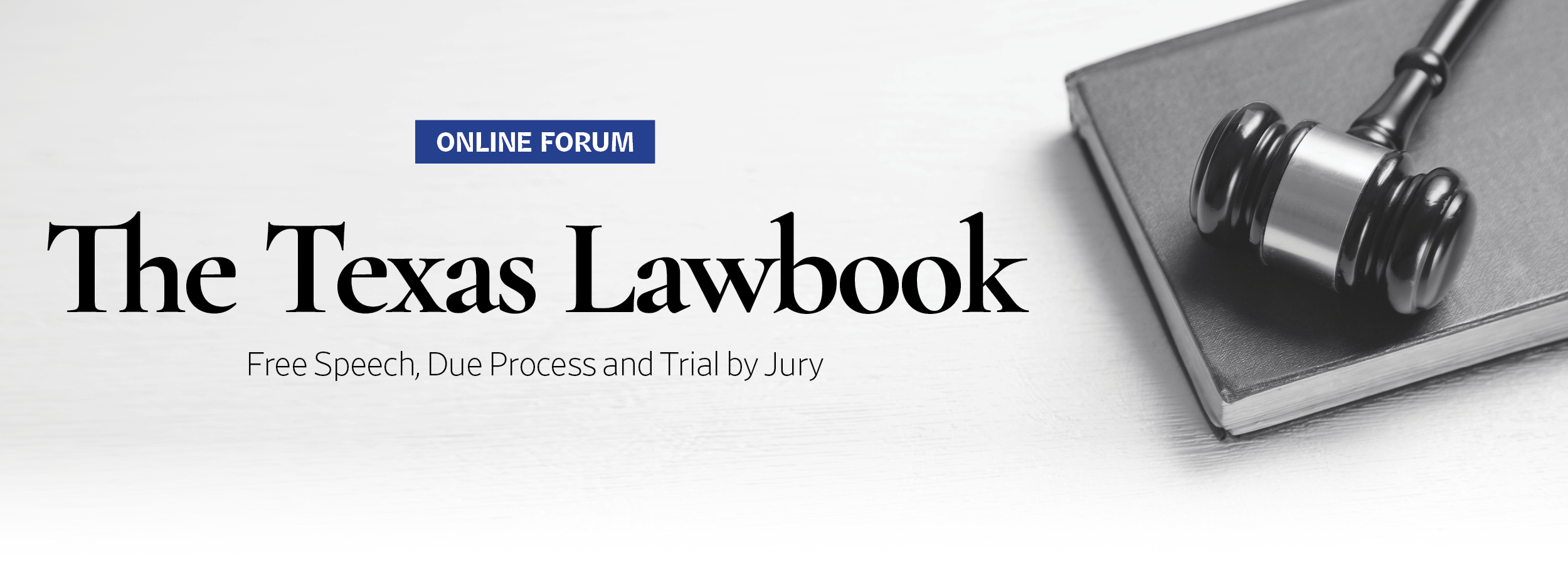More than a dozen professors from Texas law schools joined an amicus brief in support of Perkins Coie’s challenge to President Donald Trump’s March 6 executive order targeting the firm.
The executive order is unconstitutional and poses a grave threat to the rule of law, says the amicus brief, filed Wednesday and signed by 363 law professors across the country, including 14 from Texas.
The Texas law professors hail from Southern Methodist University’s Dedman School of Law, University of Texas School of Law, South Texas College of Law Houston, University of Houston Law Center and University of North Texas Dallas College of Law.
“The impact of the Order reverberates far beyond the particular firm that is targeted,” the brief says.

How Should Lawyers, Firms and GCs
Respond to President Trump’s Challenges?
Going forward, lawyers will have to weigh whether a prospective client’s matter will likely trigger President Trump’s ire and what impact that will have on their business opportunities, as well as their other clients, “whom ethical duties are owed,” according to the brief.
“The Executive branch has no constitutional authority to use executive orders as a cudgel to beat the American legal system into submission,” the brief states.

Thomas S. Leatherbury, director of the First Amendment Clinic at SMU’s Dedman School of Law, said he was proud to lend his signature to the brief.
“Written by pre-eminent constitutional and legal ethics scholars, the brief explains clearly and crisply the multiple constitutional violations contained in the Executive Order,” Leatherbury said. “As teachers, we have a special duty to model for our students the critical role that lawyers play in our democracy — to represent our clients, both popular and unpopular, zealously and ethically and to always try to advance the rule of law, not the tyranny of men.”
President Trump has so far issued five executive orders targeting law firms like Perkins Coie, which has about 60 attorneys in its Austin and Dallas offices. The orders target corporate law firms that have done pro bono work for immigrants seeking asylum, promoted diversity and inclusion efforts or hired lawyers connected to previous investigations into President Trump.
Perkins Coie’s lawsuit argues President Trump’s order violates the First, Fifth and Sixth Amendments.
“As experts in constitutional law, legal ethics, and the history of the legal profession, among other fields, we have a significant interest in ensuring that the principles of free speech, freedom of association, the right to petition the government, and the right to counsel are upheld,” the professors say in their brief. “As educators, amici have an interest in fostering the next generation of attorneys, and in preparing them to zealously represent clients and causes without fear of reprisal.”
Texas law school professors who joined the amicus brief
UNIVERSITY OF HOUSTON LAW CENTER
Emily Berman, William B. Bates Distinguished Chair in Law
Daniel I. Morales, Associate Professor of Law, Dwight Olds Chair in Law
SMU DEDMAN SCHOOL OF LAW
Dale Carpenter, Judge William Hawley Atwell Chair of Constitutional Law
Nathan Cortez, Callejo Endowed Professor
Joanna L. Grossman, Ellen K. Solender Endowed Chair in Women and Law & Professor of Law
Grant M. Hayden, Richard R. Lee Jr. Endowed Professor of Law
Jeffrey Kahn, University Distinguished Professor of Law
Thomas S. Leatherbury, Clinical Professor of Law and Director of the First Amendment Clinic
Thomas Wm. Mayo, Professor of Law
Eric Ruben, Associate Professor of Law
SOUTH TEXAS COLLEGE OF LAW HOUSTON
Sharon Finegan, Professor of Law
Ryan H. Nelson, Associate Professor of Law
UNIVERSITY OF TEXAS SCHOOL OF LAW
Lucas A. Powe, Jr., Anne Green Regents Chair
UNT DALLAS COLLEGE OF LAW
Brian L. Owsley, Associate Professor of Law
